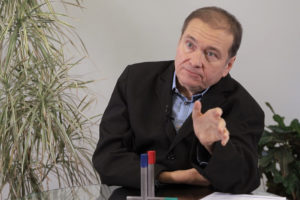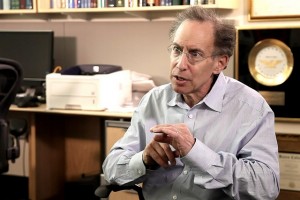Self-recognition
Neuroscientist Onur Güntürkün on the ability of self-recognition, the mirror test and why pigeons are frighten...
What role does vitamin E play in our bodies? What can happen if your diet is lacking vitamin E? Professor at Tufts University, Angelo Azzi, explains the history and future prospects of vitamin E research.
So the question for scientists is “why?” Why a molecule prevents disease. The idea that vitamin E was an antioxidant, we thought, “good,” maybe it was the mechanism which would prevent the disease of the brain following these difficulties in movement called ataxia.
NIH, the National Institute of Health in the United States, provided millions of dollars to prove this concept. Now, going from an initial study or some initial studies, especially epidemiological, where a large number of people were studying what they eat and how many vitamins they ate, then how they develop disease. Then they started to look into for instance, atherosclerosis. Thousands of people were studied, given vitamin E, or control groups without treatment. The result was zero, no effect.
So essentially, now we are left with a vitamin which is not good for all kinds of disease, but only two situations are cured. One is called NASH, which is an accumulation of fat in the liver, not due to excess alcohol consumption. The other one is this neurodegenerative disease due to an absence of vitamin E.

Neuroscientist Onur Güntürkün on the ability of self-recognition, the mirror test and why pigeons are frighten...

Two bacterial pathogens changed their very own cell shape as they adapted to the nasopharynx microbiome

MIT Professor Robert Langer on artificial organs, fibers encapsulation, and diseases that can't be treated wit...